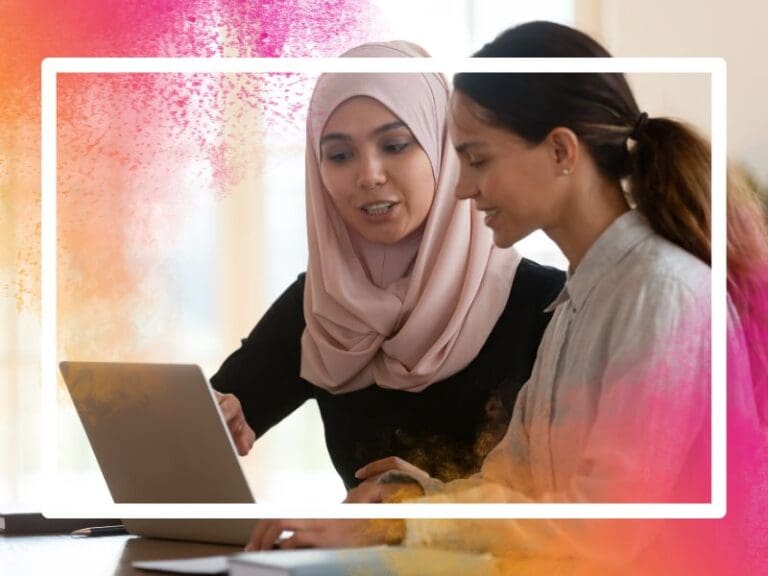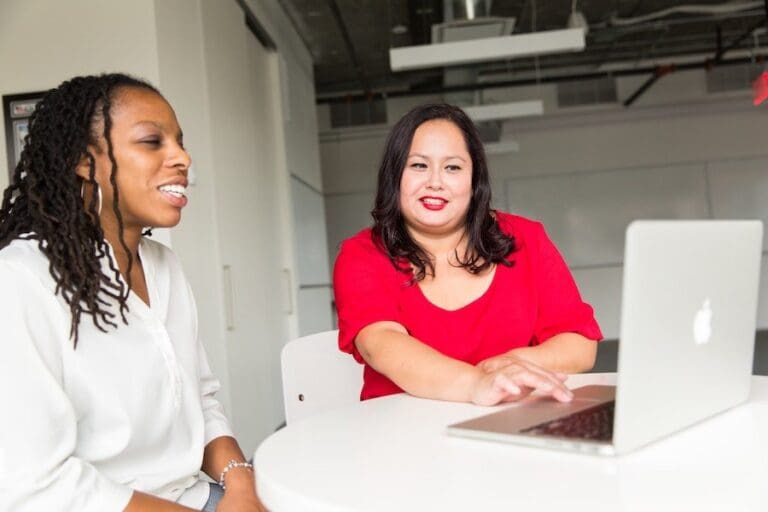Kimberly (Kim) Matenchuk is managing director, programmable media at Cloudinary, a leading image and video technology platform.
 She also serves as a MACH Alliance executive board member where she leads the DEIB strategy including the fast growing Women in MACH initiative.
She also serves as a MACH Alliance executive board member where she leads the DEIB strategy including the fast growing Women in MACH initiative.
Kim’s focus at Cloudinary is on industry trends, video strategy and roadmap development, go-to-market strategies, supporting sales and aligning cross functional teams to maximise value to customers. Kim previously spent 10 years at Google, before becoming the Senior Director-Sales at GE Digital Software Solutions Ltd., and the Managing Director at Ricardo Software. She holds an MBA from the University of Cambridge and an undergraduate degree from the University of Alberta and presently resides in London.
I owe karma a lot.
Whenever I’ve asked someone to mentor me in my tech career they’ve readily agreed. Mentorship has not only helped me progress, it’s also made my day-to-day work more fulfilling and purposeful.
Now I’m paying it forward by setting up mentorship programmes to boost women at various stages of their careers. Many are just starting out, but others are further down the path, grappling with whether or when to have children, skilling up for a major promotion or navigating gender bias. Those later in their careers may be wondering what’s left to achieve, confronting ageism, or navigating the new work-life balance that comes with caring for aging parents.
Mentorship provides a confidential, non-judgmental space for women to connect with role models who have learned through all these work/life experiences. Besides career progression advice, women gain confidence in areas they often struggle with like assertiveness, setting boundaries and negotiating pay.
Study after study shows that mentorship also adds considerably to companies’ bottom lines and even the macroeconomy. Gender diverse companies are 25% more likely to be profitable (McKinsey) and outperformed less diverse companies financially by an average of 1.2% over ten years (BlackRock). IMF Research calculated that fully closing the gender gap in labour markets could increase GDP by a staggering 23% on average.
The following ‘building blocks’ are based on my experiences chairing the first mentorship programme for The MACH Alliance, where I’m an executive board member, and latterly for my employer, Cloudinary, where I’m involved in our newly established ERG.
Laying the foundation
Executive sponsorship is an absolute must. But this has to go beyond sign-off and lip service. The CEO and leadership team need to be actively involved in mentoring people.
Money is also essential to fund some skills development. For example, male allies often ask for coaching on difficult workplace issues that women face, like sexual harassment. Depending on the situation, you might need to invest in a book or send a mentor on a course with role plays. If the company can’t set aside funds for those relatively small investments, it’s not serious enough.
Pre-planning
Mentorship programmes are constrained by how many mentors they can attract. Attracting mentees is relatively easy; our first cohort attracted 3X more than we forecast!
To attract our MACH mentors, we launched the programme at a high profile industry event. Putting our leaders together in a captive audience created peer pressure to take part. To overcome time objections, we explained that it would take only 6 hours, maximum, over six months. Few could reasonably argue, especially given how much bottom-line value mentorship returns. We reminded leaders how much they benefited from guidance and help in their careers and how good it feels to pay it back.
The launch
The most important thing to get right at launch is setting expectations. When both sides are clear on their roles and responsibilities, it’s much easier for them to get started and continue down the right track. We coached participants to spend at least 30 minutes in their first session discussing their backgrounds, and that mentees should prepare one specific issue to discuss. We established that mentees take responsibility for scheduling meetings.
It’s okay for partnerships not to gel immediately in that first meeting. But if that continues, to say, the third meeting, we may decide to rematch people. However, there is often value in persisting with partnerships that are a little uncomfortable at first as new perspectives can be hugely beneficial.
Running the programme
During the programme, it’s important to check in with participants to get feedback either in-person, through surveys, or both. We found that most partnerships ran smoothly. Where people struggled with specific issues, we coached them ourselves or suggested interventions like training or pointed them to books, podcasts, videos etc.
Wrapping up
As the programme comes to a close, we recommend that mentors take the initiative and invite their mentees to continue, continue at a different frequency, or meet on an ad hoc basis. But it’s critical that mentors drive this part of the process, not mentees.
Finally, it’s important to measure the outcomes using anonymised data and anecdotes. That includes sharing simple data points like measuring the percentage of participants who found the programme valuable, and also collecting qualitative data about aspects that were specifically useful, and where improvements could be made.
Benefits of intergenerational partnerships
Intergenerational partnerships can offer rich insights to both parties. In one situation we matched a young woman recruit with a senior male executive. The mentee was a bit starstruck by their mentor’s job title and eager for career progression advice. The mentor became enlightened to workplace issues that his mentee routinely faced. These made him completely reexamine some of his own behaviours and attitudes.
Not for everyone
Some executives lack the temperament or emotional intelligence to serve as mentors. We diplomatically directed them away from the programme, explaining (honestly) that we didn’t find suitable matches for them. Since these people weren’t overly eager to participate anyway, this was relatively easy to manage.
Building allyship and diversity
Our first programme for MACH was so successful, attracting six times more participants than planned. We ran a second cohort immediately, which matched even more pairs together and inspired a new awareness of male allyship. I am thrilled that so many men have been approaching us to ask how they can be better allies – not only to women but other marginalised groups.
It also feels great to repay my debt to karma, but more importantly, improve the career prospects for so many talented women, and their allies, in tech.
For more information on the MACH Alliance and its mentorship programme, visit https://machalliance.org/women-in-mach-mentoring








